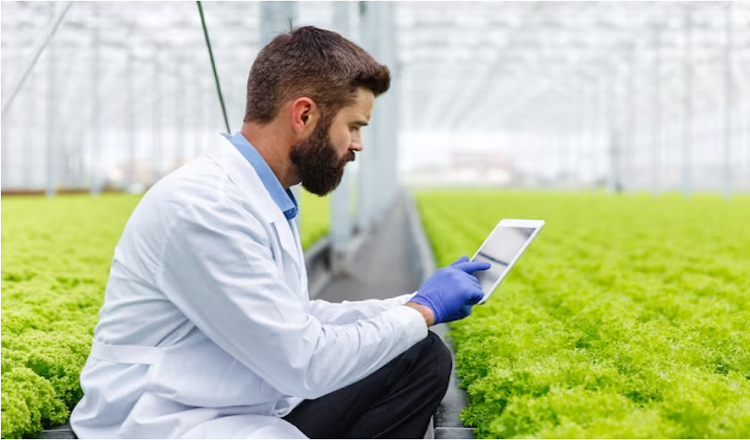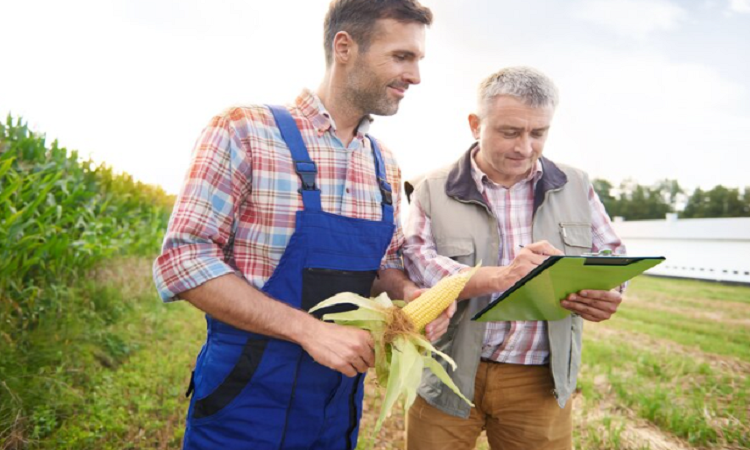The impact of technology on agriculture, such as precision farming and biotechnology
Are you tired of hearing the age-old saying, “back in my day, we did everything by hand”? Well, those days are long gone, my friend, and technology has revolutionized every industry, including agriculture. From precision farming to biotechnology, the impact of technology on agriculture has been immense, and we are here to explore it all.
Gone are the days of guessing and hoping for the best when it comes to farming. With precision farming, farmers can use technology to optimize their crop yield, reduce their resource use, and increase their profitability. Biotechnology has also played a significant role in improving agriculture by introducing genetically modified crops and biotech-based seed treatments that help farmers grow healthier, more resistant crops.
But why is technology so important in agriculture? The answer is simple – as the world’s population grows, so does the need for food production. We need to find more efficient ways of growing crops, and technology provides the solution. In this article, we will delve into the impact of technology on agriculture, exploring both the positive and negative effects of these advancements. We’ll also look at the environmental and economic impacts of technology on agriculture and discuss potential future advancements in agricultural technology. So sit back, relax, and let’s explore the exciting world of agriculture technology!
Precision farming
Precision farming, also known as precision agriculture, is a farming management concept that uses technology to optimize crop production and reduce waste. It involves collecting and analyzing data from sensors and other tools to make more informed decisions about crop management. With precision farming, farmers can monitor and control every aspect of their farming operation, including soil moisture, nutrient levels, and plant growth.
The benefits of precision farming
- Improved crop yields One of the significant benefits of precision farming is improved crop yields. By monitoring and controlling various factors such as water, fertilizer, and seed planting, farmers can increase their yields significantly. Precision farming enables farmers to identify areas in their fields that require more attention and provide appropriate care, resulting in healthier plants and higher yields.
- Reduction in resource use Precision farming also helps farmers reduce their resource use, including water, fertilizer, and energy. By using tools such as GPS mapping and variable rate technology, farmers can apply resources only where they are needed, reducing waste and conserving resources.
- Increased profitability Precision farming can also increase the profitability of farming operations. By improving crop yields and reducing resource use, farmers can produce more crops with lower input costs, resulting in higher profits. Precision farming also enables farmers to make more informed decisions about their farming practices, reducing the risk of crop failure and improving overall financial performance.
Examples of precision farming techniques
- GPS mapping GPS mapping is a precision farming technique that uses satellite technology to create detailed maps of fields. These maps can be used to guide seed planting and fertilizer application, enabling farmers to apply resources only where they are needed. GPS mapping also enables farmers to monitor the growth of their crops and identify areas that require more attention.
- Variable rate technology Variable rate technology is a precision farming technique that enables farmers to vary the rate of seed planting and fertilizer application based on the specific needs of different areas of their fields. By using variable rate technology, farmers can apply resources only where they are needed, reducing waste and improving crop yields.
- Drones and aerial imaging Drones and aerial imaging are precision farming techniques that enable farmers to monitor their crops from above. By using drones and aerial imaging, farmers can identify areas of their fields that require more attention and detect potential issues before they become significant problems. Drones can also be used to apply pesticides and herbicides to crops, reducing the need for manual labor and improving efficiency.
Overall, precision farming is an essential tool in modern agriculture, enabling farmers to produce higher yields, use resources more efficiently, and improve profitability. By adopting precision farming techniques, farmers can increase their competitiveness in the global marketplace and meet the growing demand for food production.
Biotechnology
Biotechnology is a branch of science that uses living organisms or parts of them to create new products or improve existing ones. In agriculture, biotechnology involves using genetic engineering to modify plants and animals to improve their characteristics and increase yields. This can involve introducing genes from other species, changing the expression of existing genes, or manipulating DNA sequences.
The benefits of biotechnology
- Improved crop yields Biotechnology can help increase crop yields by creating plants that are resistant to pests and diseases, more tolerant to environmental stress, and produce higher quality products. This can be achieved through genetic modification, which allows for the development of crops that are more resistant to pests and can tolerate harsh weather conditions.
- Reduced use of pesticides and herbicides Biotechnology can also help reduce the use of pesticides and herbicides by creating crops that are naturally resistant to pests and weeds. This can improve environmental sustainability and reduce the risk of harmful chemicals entering the food chain.
- Increased resistance to pests and disease Biotechnology can also help create crops that are more resistant to pests and diseases, reducing crop losses and increasing overall productivity. This can be achieved through the use of genetic modification, which can introduce traits such as insect resistance and disease tolerance.
Examples of biotechnology in agriculture
- Genetically modified crops Genetically modified crops are one of the most common examples of biotechnology in agriculture. They are created by introducing foreign genes into plants to give them new traits, such as resistance to pests or herbicides.
- Biotech-based seed treatments Biotech-based seed treatments involve applying biological or chemical agents to the surface of seeds to protect them from pests and diseases. This can help improve germination rates and reduce the risk of crop loss.
- Precision breeding Precision breeding involves using genetic tools to select and breed plants with desirable traits. This can be used to create crops that are more resistant to pests and diseases, have higher yields, or are better suited to specific environmental conditions.
Overall, biotechnology is an essential tool in modern agriculture, enabling farmers to produce higher yields, reduce the use of harmful chemicals, and improve sustainability. While biotechnology is not without its controversies, it has the potential to revolutionize the way we produce food and meet the growing demand for food production in a sustainable manner.
Environmental Impact
1. Positive impact of technology on the environment
Technology has made significant strides in improving the environment, including reducing carbon emissions, minimizing waste, and conserving natural resources. For example, advancements in renewable energy technologies, such as solar and wind power, have greatly reduced dependence on fossil fuels and decreased air pollution.
2. Negative impact of technology on the environment
However, technology has also contributed to environmental degradation through activities such as mining, deforestation, and pollution. The overuse of natural resources and the release of harmful chemicals into the environment can have long-lasting impacts on ecosystems and human health.
3. Balancing technology with environmental concerns
It is important to balance the benefits of technology with the need to protect the environment. This can be achieved through sustainable development practices that consider the long-term environmental impacts of technology. This may involve using clean energy sources, reducing waste and emissions, and promoting responsible use of natural resources. By prioritizing environmental concerns alongside technological advancements, we can ensure a sustainable future for generations to come.
Economic Impact
Technology has had a significant impact on the farming industry, both locally and globally. It has allowed for more efficient production and higher yields, leading to increased profitability for farmers. This has also resulted in the consolidation of farms, with larger operations becoming more common. However, smaller farms can still benefit from technology, as precision farming techniques can help them optimize their resources and increase productivity.
In local communities, technology has created new jobs in fields such as precision agriculture and agricultural technology development. It has also improved access to fresh produce and helped small businesses by streamlining supply chains and reducing costs.
On a global scale, technology has increased agricultural productivity and created new opportunities for farmers to sell their products in global markets. This has also led to increased competition and price pressures, as well as concerns about the impact of large-scale farming on local ecosystems and biodiversity. Ultimately, the economic impact of technology on agriculture will continue to evolve as the industry adapts to new technologies and changing market conditions.
Conclusion
In conclusion, advancements in agricultural technology have had a significant impact on the farming industry, improving productivity, efficiency, and profitability. From precision farming techniques to biotechnology, technology has revolutionized the way we produce and consume food, helping to feed a growing global population while minimizing environmental impacts.
Looking to the future, there is great potential for further advancements in agricultural technology, including the use of artificial intelligence and robotics. These technologies could help farmers further optimize their operations, reduce costs, and minimize environmental impacts. However, it is important to continue considering the potential ethical and environmental implications of these new technologies as they are developed and implemented.
In summary, the impact of technology on agriculture has been overwhelmingly positive, but it is crucial to remain mindful of the potential risks and challenges that come with further innovation. For those interested in learning more, there are many resources available for further reading and research, including academic journals, industry publications, and government reports.
Read More You May Like:














Post Comment